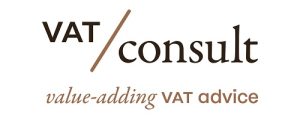Transfer Pricing and VAT after Arcomet: relevance is clear, but the debate is not settled
- VAT Applicability on Transfer Pricing Adjustments: The CJEU ruled that transfer pricing adjustments between associated enterprises, aimed at aligning profits with the functions performed and risks assumed, constitute consideration for taxable services under VAT. The direct link between the services provided and the remuneration received ensures that these adjustments fall within the scope of VAT.
- Input VAT Deduction Conditions: The Court clarified that while a valid invoice is necessary for input VAT deduction, tax authorities cannot refuse deductions solely based on formal defects in the invoice. Instead, they may require additional evidence to substantiate that the services were supplied and used for taxable activities, emphasizing that economic necessity is not a condition for deduction.
- Implications for Businesses: The judgment underscores the importance of clear contracts and detailed invoices regarding intra-group services and transfer pricing policies. Businesses must ensure compliance with VAT requirements by maintaining sufficient documentation to support input VAT deductions, particularly in light of the ruling’s focus on the relationship between transfer pricing and VAT.
Source VAT-consult
Click on the logo to visit the website
See also
The Court of Justice of the European Union has weighed in on how VAT and Transfer Pricing adjustments interact.
- VAT Taxability of TP Adjustments: Margin-based transfer pricing adjustments are considered VAT-taxable transactions if there is a clear legal relationship with reciprocal performances, where the principal provides services and the operating company pays a portion of its margin, establishing a direct link between services and remuneration.
- Evidence Required for Input VAT Recovery: Recipients must typically provide an invoice to recover input VAT on transfer pricing adjustments. Authorities may request additional proof of the actual supply and use of services for taxable activities, but they cannot challenge the economic necessity of those services.
- Collaboration Between Tax Professionals: Transfer pricing and indirect tax professionals should collaborate early in the process to ensure TP arrangements clearly define the services provided and the corresponding remuneration. Effective documentation and substance are critical to maintaining VAT positions and avoiding scrutiny from tax authorities.
Source Khalid Abdullah
CJEU Judgment Critiqued: Uncertainty in VAT and Transfer Pricing
- Judgment Highlights: The CJEU ruling addresses the complexities of VAT and transfer pricing, particularly focusing on the first question regarding the existence of remuneration and its implications for establishing a direct link to VAT.
- Court’s Reasoning Critiqued: The Court maintains that uncertainty about remuneration can disrupt the direct link necessary for VAT applicability. However, its reasoning is questioned, particularly its reliance on fixed contractual mechanisms and the lack of loss as indicators of certainty.
- Comparison with Baštová Case: The judgment draws parallels with the Baštová case, yet the Court’s arguments, such as referencing fixed mechanisms and hindsight assessments, are criticized as inadequate to demonstrate the certainty of remuneration in both contexts.
Source Fabian Barth

- Join the Linkedin Group on ECJ/CJEU/General Court VAT Cases, click HERE
- VATupdate.com – Your FREE source of information on ECJ VAT Cases
- Podcasts & briefing documents: VAT concepts explained through ECJ/CJEU cases on Spotify
Latest Posts in "European Union"
- Comments on ECJ Case C-639/24: Limits on Denying VAT Exemption for Intra-Community Supplies
- European Parliament Analysis: The Role of the Reverse Charge Mechanism in Tackling VAT Fraud
- Mathez Formation: VAT news: the CJEU puts economic reality back at the centre of the game (Feb 6)
- Blog: Navigating Indirect Rebates: A Call for Clarity in VAT Regulations Under ViDA
- Briefing document & Podcast: ECJ C-462/16 – Boehringer Ingelheim Pharma GmbH & Co. KG – Discounts reduce the VAT value of pharmaceutical supplies















